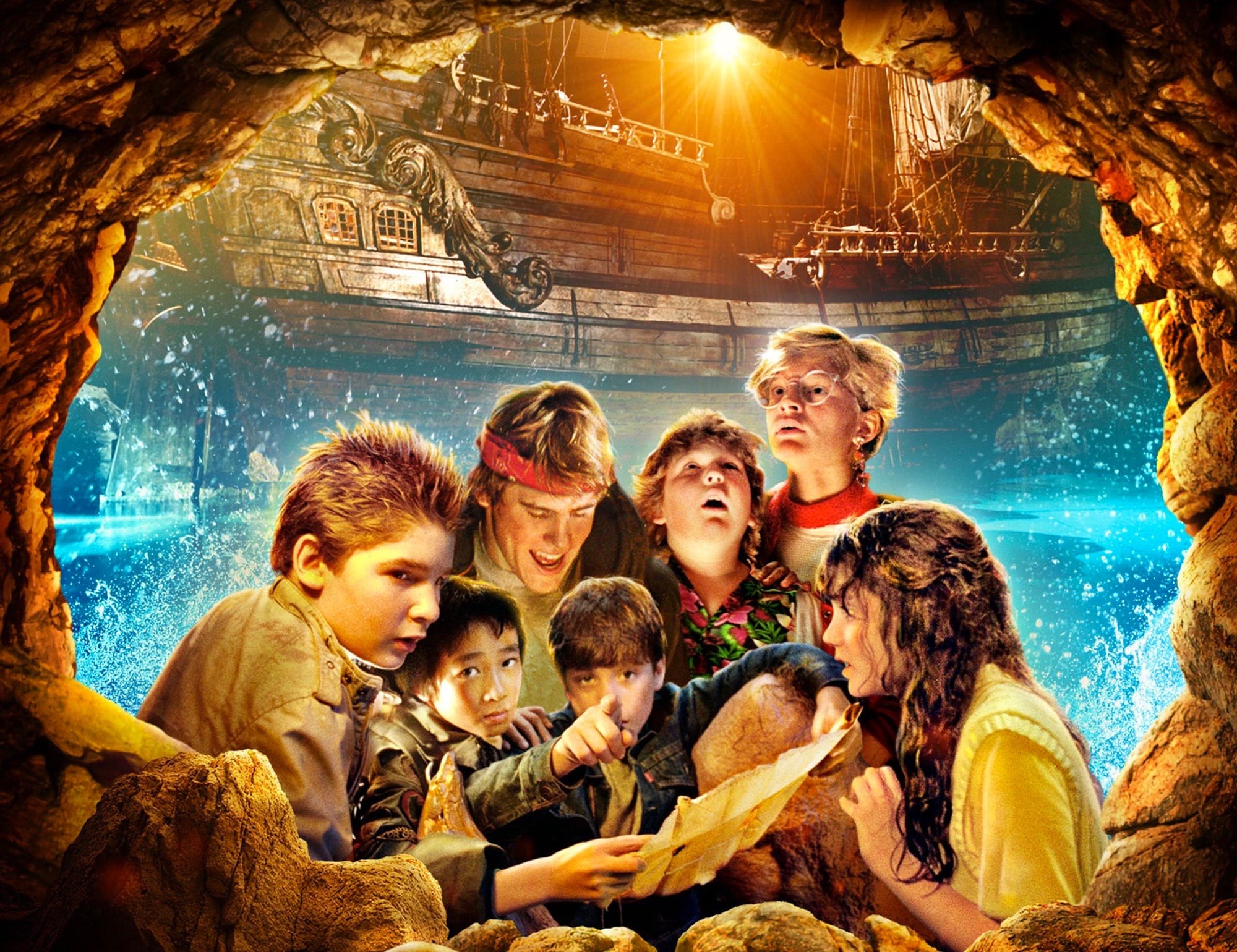CHILDHOOD TREASURE

I went to see The Goonies 40th Anniversary screening the other evening—because why not? It made more sense than cowering in an over-caffeinated state of existential dread about the state of the world.
Seeing the old characters from this childhood movie again felt like returning to a sort of back-of-the-cupboard Narnia—a world from the past where mainstream culture seemed happier, the world a little more stable, and political correctness hadn’t yet put the safety stabilisers on PG movies.
What impressed me most about the film this time around was director Richard Donner’s unwavering commitment to its hyperactive world of mouthy kids, BMXs, waterfalls, and pirate treasure—as if he believed in it just as much as the kids in the story do. I believe that’s the difference between making an average kids’ film and a genuinely classic generational one: you have to, like Peter Pan, believe you can fly in order to inspire the younger audience to fly by which I mean believing in the wonder of things and events as they unfold in each scene.
There’s a beautiful bit of writing near the final quarter of the film that perfectly encapsulates this philosophy: when Mikey (Sean Astin) implores the rest of the Goonies (his friends) to see their adventure through to the end. He argues that the world they currently inhabit is their time—not the same as the time in which the adults above ground exist. The idea being that once they return to that adult world, they may never truly return ever again to the one of childhood, where waterfalls and pirate treasure exist—things that may be lost forever.
Mikey: "Don't you realise? The next time you see sky, it'll be over another town. The next time you take a test, it'll be in some other school. Our parents, they want the best of stuff for us. But right now, they got to do what's right for them. Because it's their time. Their time! Up there! Down here, it's our time. It's our time down here."
It’s funny to think of young Sean Astin delivering this rousing speech back in 1985, considering that roughly twenty years later, he would go on to deliver another iconic speech as Samwise Gamgee in The Two Towers, the second installment of Peter Jackson’s The Lord of the Rings trilogy:
Sam: "I know. It's all wrong. By rights we shouldn't even be here. But we are. It's like in the great stories, Mr. Frodo—the ones that really mattered. Full of darkness and danger, they were. And sometimes you didn’t want to know the end. Because how could the end be happy? How could the world go back to the way it was when so much bad had happened? But in the end, it's only a passing thing, this shadow. Even darkness must pass. A new day will come. And when the sun shines, it will shine out the clearer. Those were the stories that stayed with you—that meant something, even if you were too small to understand why. But I think, Mr. Frodo, I do understand. I know now. Folk in those stories had lots of chances of turning back, only they didn’t. They kept going. Because they were holding on to something."
I was also struck by the brilliant comic performance of Chunk (played by Jeff Cohen), famous for gifting the world the “Truffle Shuffle.” Watching his early repartee with the other Goonies, his hysterical scenes with the villainous Fratellis, and later his touching bond with Sloth (the Elephant Man-looking companion he befriends over their shared love of Babe Ruth chocolate bars) was a reminder of just how much better and freer most child actors and their performances seemed to be back in the ’80s.
Maybe I’m just biased—watching it through my Xennial eyes.
I guess that was my time.